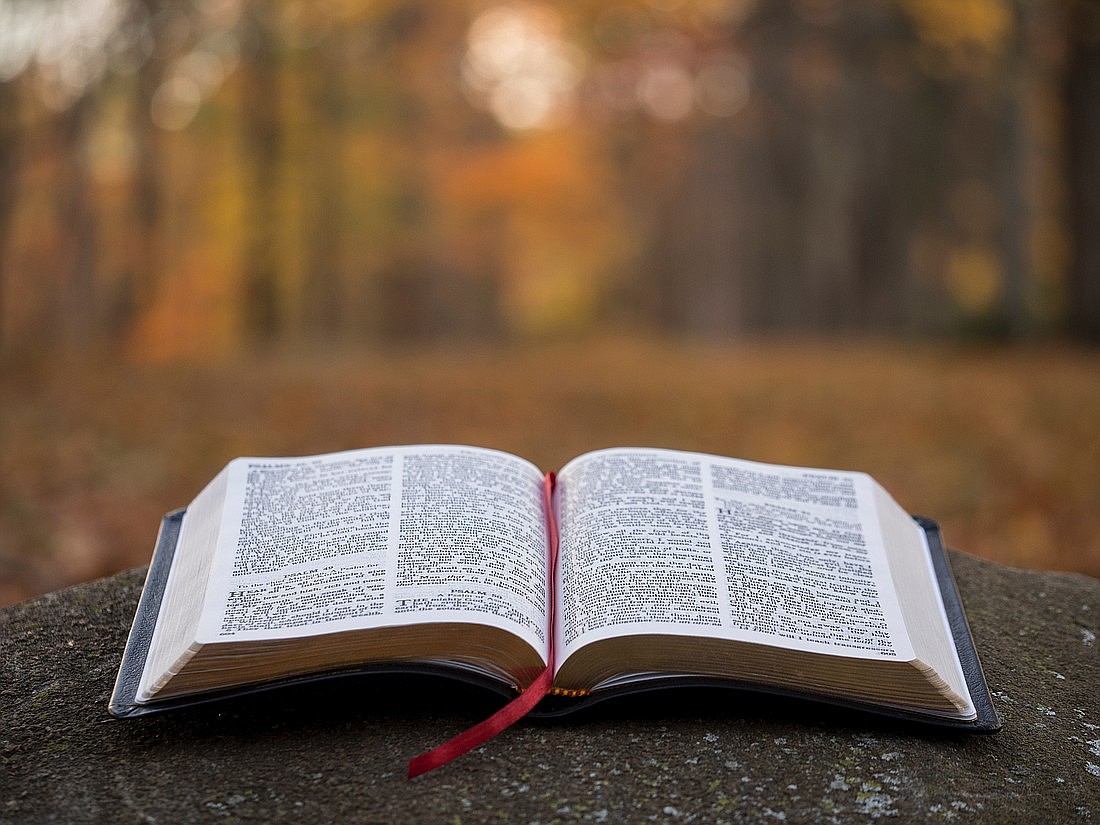July 23, 2025 at 1:03 p.m.
Lord, teach us how to pray … please!
An absolutely essential thing for us as Christians is prayer or praying. In fact, we might say that prayer is also an essential part of being human, as important as other basic human things such as breathing or eating. After all, we are made in the image and likeness of God (Genesis 1:26) and so we are spiritual beings, hardwired as it were for prayer. If we do not pray then we will slowly wither and die in our very heart and soul, just as would happen to us physically speaking if we did not eat or hydrate properly.
And I tell you, ask and you will receive; seek and you will find;
knock and the door will be opened to you. — Luke 11:9
And yet prayer can be difficult. No surprise then that even in the Gospels (as in our Gospel this weekend), the disciples ask Jesus: “Lord, teach us to pray” (Luke 11:1). In response, Jesus gives them (and us!) the prayer: the “Our Father.” This prayer is a prayer in itself, of course, but it can also serve as the model or pattern of not only what we should pray, but how we should pray. (Remember the disciples asked Jesus not so much what to pray for, but rather how they should pray.) The prayer is really a series of statements and petitions. We begin by giving praise and honor to God, who is in heaven and whose name is hallowed (or holy) and ask that God’s will be done. After that, we then make various petitions for ourselves and our community. This then is our basic pattern or model of how to pray.
We can also see that the “Our Father” is not just a prayer for individuals but for the community: we do not say “my Father, but “our Father” and we constantly say “us,” not “me.” Give us this day … forgive us our trespasses. This is very significant for many reasons. When we pray, we never do so alone, but rather we always pray as members of a community, the body of Christ. Even if we are sitting alone somewhere, we are still praying as a member of a huge body of people that spans time and place.
This “us” aspect of prayer means that everyone — yes, everyone — can pray. St. Francis de Sales remarked that there should be no person who writes themselves off as not able to pray. Why? Well, because he says, “… so long as they are capable of grace, they are capable of prayer.” In fact, he goes on to say that “… it is only the devil who is incapable of prayer, because he alone is incapable of love.” No excuses then! It is true that sometimes prayer can seem very hard or even impossible because we are experiencing a spiritual dryness due to illness, or a crisis in our lives, or just because. Perhaps even here we can pray simply by offering in prayer our inability at that time to pray (a suggestion borrowed from a small book of prayer for cancer patients called “The Pink Book of Prayer.”)
The “Our Father” also gives us a pattern or model of what we call prayers of intercession and petition. Incidentally, we have a wonderful example of both intercessory prayer and being persistent in that prayer in our First Reading (Genesis 18:20-32). We must certainly hand it to Abraham in terms of his dogged dialogue with God. Notice, too, how patient God is as Abraham whittles down the numbers: 50 … 45 … 40, etc. However, we can also observe Abraham’s deference to and reverence for God, as he formulates each of his prayers of petition for the people in the city. In other words, our First Reading this Sunday presents to us a couple of very helpful lessons as we reflect about prayer.
If one looks closely, the “Our Father” prayer contains a number of different petitions: daily bread … forgive us … lead us not … deliver us … etc. Jesus Christ, of course, is the intercessor, but we, too, can pray in this way. But with prayers of intercession, the “Our Father” teaches us that we seek not so much to change God’s mind as it were with our intercessions, but rather to seek out His will (“thy will be done”). As the late Pope Francis said, “We can say that God’s heart is touched by our intercession, yet in reality He is there first. What our intercession achieves is that His power, His love and His faithfulness are shown ever more clearly.”
Finally, the introduction to the “Our Father” at Mass reminds us of the greatness and the wonder of this prayer: “At the Savior’s command and formed by divine teaching, we dare to say …” So, as we pray (not just “say”) the “Our Father,” let us savor its richness as our model and pattern of prayer. Let us indeed dare to pray!
- Tanzania’s Cardinal Pengo remembered as giant of faith, a ‘towering presence’ for Africa
- Bishops urge prudence, prayer, invoke Guadalupe’s protection as violence erupts in Mexico
- St. Francis’ relics open to public for first extended veneration in 800 years
- ‘We will grow in wisdom, holiness together,’ new bishop of Tucson, Ariz., tells faithful
- Pope renews ‘heartfelt appeal’ for ‘immediate ceasefire’ in Russia-Ukraine war
- Full text: Pope Leo XIV’s Angelus address given February 22, 2026
- God offers new possibilities, not prohibitions, with his invitation to love, pope says
- Find comfort, strength in Eucharist, pope tells attendees at LA Religious Education Congress
- Pope Leo XIV tells priests not to use AI to write homilies or seek ‘likes’ on TikTok
- Historical novel pitches Christian compassion against ideologies of hatred








Comments:
You must login to comment.